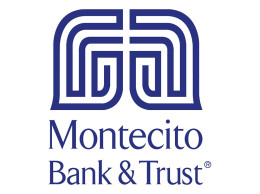Banks based in the Tri-Counties reported mostly healthier third-quarter earnings, led by the largest lender in the region, which now has a full year of profits under its belt after a recapilization deal and ownership change last year.
Here’s a closer look at how tri-county banks performed in the third quarter:
Pacific Capital Bancorp
[wikichart align=”center” ticker=”PCBC” showannotations=”true” livequote=”true” rollingdate=”6 months” width=”390″ height=”245″]Pacific Capital Bancorp, parent of Santa Barbara Bank & Trust, said Oct. 27 that it earned $20.5 million in the third quarter, marking its first full year of profits since a team of Texas bankers recapitalized it last year.
In August 2010, Dallas-based Ford Financial Fund, led by veteran bankers Gerald Ford and Carl Webb, invested $500 million into Pacific Capital as it lurched on the edge of regulatory failure brought on by years of heavy losses and a balance sheet burdened with troubled real estate loans. A team of bankers had gone through Pacific Capital’s books and written loans down to market value, essentially cleaning up its balance sheet for the new owners and leaving losses on an old set of books.
Because of the recapitalization last August, comparisons to year-earlier quarters are difficult to make, but prior to the transaction closing the banking firm was losing money. Reported assets, now of about $5.8 billion, have declined from $6.3 billion since the end of September 2010, but Ford’s team has also seen a total of $84 million in quarterly profits since it took control of the firm.
“We’re pleased with what has been achieved in the first year since our recapitalization of this great community bank,” Webb, Pacific Capital’s CEO, said in a statement. “We’ve achieved strong earnings performance, effectively managed credit issues from the company’s legacy loan portfolio, reintroduced lending products within our footprint, and continue to grow our core deposit base.”
The bank continues to operate under a regulatory order from the Comptroller of the Currency to maintain its capital levels. At the end of the third quarter, its tier one leverage and total risked-based capital ratios were 12.1 percent and 20 percent, respectively, above the minimum regulatory requirements for it to be considered well-capitalized.
First California
[wikichart align=”center” ticker=”FCAL” showannotations=”true” livequote=”true” rollingdate=”6 months” width=”390″ height=”245″]Westlake Village-based First California Financial Group said net income available to common shareholders was $900,000, or 3 cents per diluted share, in the third quarter. A year ago, the parent of First California Bank had a third quarter net loss available to common shareholders of $249,000, or 1 cent per share.
C.G. Kum, the bank’s CEO, said acquisitions made earlier in the year paid off. In the first quarter, First California bought San Luis Trust Bank in San Luis Obispo after the Federal Deposit Insurance Corp. took over the failed lender.
“To further increase profitability, we recently expanded our senior management team with a chief banking officer and added experienced bankers in a number of key markets,” Kum said in a statement. “We believe this, combined with our recent re-entry in the Small Business Administration loan program and the opening of a de novo branch in Palm Springs in early 2012, will enhance, strengthen and diversify our business.”
Heritage Oaks
[wikichart align=”center” ticker=”HEOP” showannotations=”true” livequote=”true” rollingdate=”6 months” width=”390″ height=”245″]Paso Robles-based Heritage Oaks Bancorp reported income available to common shareholders of $1.7 million, or 7 cents per share. That compares to an $11.3 million loss in the same quarter a year ago, signaling a possible long-term turnaround at the bank, which dodged out from under a regulatory order in March 2010 with a $60 million capital raise.
Heritage Oaks said it’s also experiencing improved asset quality, with non-performing assets down $11.6 million to $15.3 million.
“As asset quality continues to improve, we will place greater emphasis on improving our operating efficiency and core earnings,” Simone Lagomarsino , the bank’s new CEO, said in a statement. “While loan demand is still quite tepid along the Central Coast, we believe there are still many credit-worthy customers whose needs remain unfulfilled and who may be frustrated with their current banking relationships.”
Montecito Bank & Trust
Montecito Bank & Trust, a closely held bank owned by developer Michael Towbes, broke the billion-dollar mark for assets in the third quarter. Assets grew 6 percent from a year prior to reach just over $1 billion.
The firm said its net income year-to-date is $9.2 million, a 148 percent increase from the $3.2 million it had reached by the third quarterlast year. The bank said deposits grew $60 million to $885 million but that gross loans decreased 5.6 percent year-over-year from $538 million to $508 million because of weak loan demand.
Community West
[wikichart align=”center” ticker=”CWBC” showannotations=”true” livequote=”true” rollingdate=”6 months” width=”390″ height=”245″]Goleta-based Community West Bancshares reported a net loss applicable to common shareholders of $2.6 million, or 43 cents per diluted share, in the third quarter, compared to a $784,000 profit a year ago.
The bank said it continues to work on reducing problem assets. “The economy remains challenging, particularly with regard to real estate valuations. We are aggressively recognizing and managing problem credits, which is reflected in our net charge-offs and provisions, and we are taking every opportunity to further strengthen our credit quality,” William R. Peeples, chairman and interim president and CEO, said in an earnings release.
Community West’s nonperforming loans totaled $36.6 million at the end of September. That compares with $29.7 million at the end of June and $15.1 million a year ago. The increase is primarily due to one $4 million construction loan and one $3.2 million commercial real estate loan, it said.
Santa Clara Valley Bank
[wikichart align=”center” ticker=”SCVE” showannotations=”true” livequote=”true” rollingdate=”6 months” width=”390″ height=”245″]Santa Paula-based Santa Clara Valley Bank, which has branches in Santa Paula, Fillmore and Valencia, recorded a net profit of $140,000 for the third quarter, compared to $60,000 for the third quarter a year ago.
The bank said the improved performance was due to not having to take a loan loss provision during the first nine months of this year. Last year, it had to take to a $900,000 provision during the same period. The bank said net loan charge-offs for the first nine months of 2011 totaled $279,000, compared to $1.6 million last year.
County Commerce
[wikichart align=”center” ticker=”CNYB” showannotations=”true” livequote=”true” rollingdate=”6 months” width=”390″ height=”245″]County Commerce Bank, headquartered in Ventura, said its year-to-date profits are a company record, and that it has no non-performing assets. The small business bank earned $1.1 million in the first nine months of the year, compared to $891,000 in the first three quarters of 2010. The bank’s loan portfolio increased 7.6 percent to $104.7 million.
County Commerce said it has no non-performing assets, but increased its allowance for loan and leases by $576,000, or 24.6 percent, to $2.9 million out of “an abundance of caution.”
American Riviera
[wikichart align=”center” ticker=”ARBV” showannotations=”true” livequote=”true” rollingdate=”6 months” width=”390″ height=”245″]Santa Barbara-based American Riviera Bank also said its year-to-date earnings of $3 million were a record. The earnings increase was primarily due to recognition of $1.8 million in federal and state tax benefits made possible by the reversal of a valuation allowance on the deferred tax assets, it said.
“Even excluding this extraordinary event, the bank has generated year-to-date pre-tax earnings exceeding those of last year by $204,000. With our track record of eight consecutive quarters of profitability, strong net interest margin, and stable expense levels; management determined that the deferred tax assets were more likely than not to be utilized and recognized the benefit,” American Riviera President and CEO Jeff DeVine said in a statement,.
The one-branch bank said its loans and deposits were both up compared to the second quarter.






 Print
Print Email
Email
















